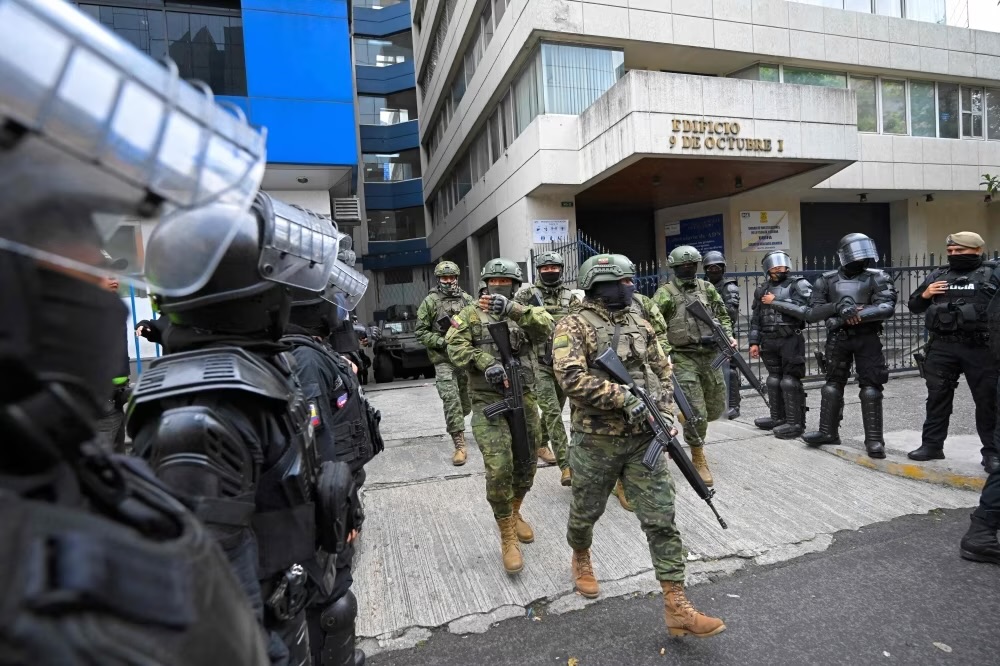In a dramatic turn of events, Ecuadorian police stormed the Mexican embassy on Friday, igniting a diplomatic firestorm and raising questions about the sanctity of embassies and the rule of law. The incident revolves around former Ecuadorian Vice President Jorge Glas, who sought refuge at the embassy, and the subsequent actions taken by Ecuador’s government, prompting outcry from Mexico and condemnation from around the world. This is another reason why Politically Exposed Persons are considered high risk.
The Backstory of Jorge Glas
Jorge Glas, who served as Vice President of Ecuador from 2013 to 2018 under President Rafael Correa’s administration, found himself entangled in a web of corruption allegations. Convicted twice for corruption, Glas sought political asylum at the Mexican embassy in December 2023, claiming persecution and harassment by Ecuador’s authorities.
Ecuador’s Response
However, Ecuador’s government, led by President Daniel Noboa, viewed Glas’s presence at the embassy as a breach of diplomatic norms and a threat to national sovereignty. Citing Glas’s status as a convicted criminal, Ecuador sought to apprehend him, despite Mexico’s grant of asylum. The armed raid on the embassy, authorized by the government, resulted in Glas being taken into custody by Ecuadorian police.
International Outcry
The brazen move by Ecuador sparked outrage internationally, with Mexican President Andrés Manuel Lopez Obrador condemning it as a violation of international law and Mexico’s sovereignty. The Mexican government asserted that several diplomats were injured during the raid, further escalating tensions between the two countries.
Diplomatic Conventions
Central to the controversy is the Vienna Convention on Diplomatic Relations, a cornerstone of international diplomacy. The Convention stipulates that embassy premises are inviolable, and the receiving state must safeguard them from intrusion or damage. Ecuador’s incursion into the Mexican embassy raises serious questions about adherence to diplomatic conventions and the rule of law.
Broader Implications
The Jorge Glas case is not an isolated incident but reflects broader geopolitical tensions and power dynamics within Latin America. It underscores the delicate balance between sovereignty and international obligations and the challenges of navigating diplomatic relations in an increasingly polarized world.
Global Response
The international community has been quick to react to the incident, with Latin American governments expressing solidarity with Mexico and denouncing Ecuador’s actions. Brazil described Ecuador’s actions as a “clear violation” of international norms, while Colombia emphasized the importance of upholding international law in the face of growing global unrest.
As the dust settles on the embassy raid, the Jorge Glas case unearths the complexities of international diplomacy and the need for respect for established norms and principles. The fallout from this incident will likely reverberate across the region, shaping future diplomatic relations and the perception of Latin American governance on the global stage.



